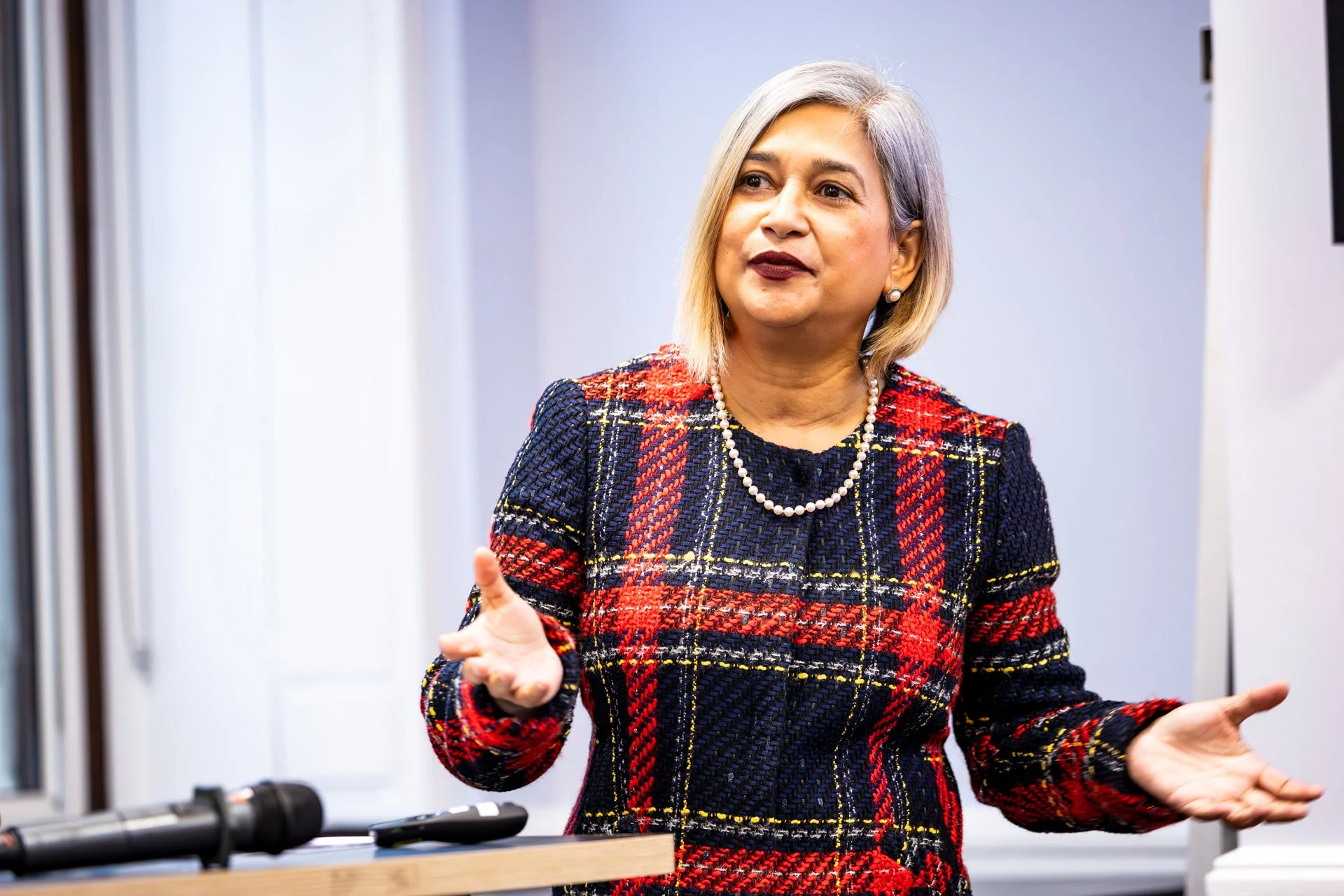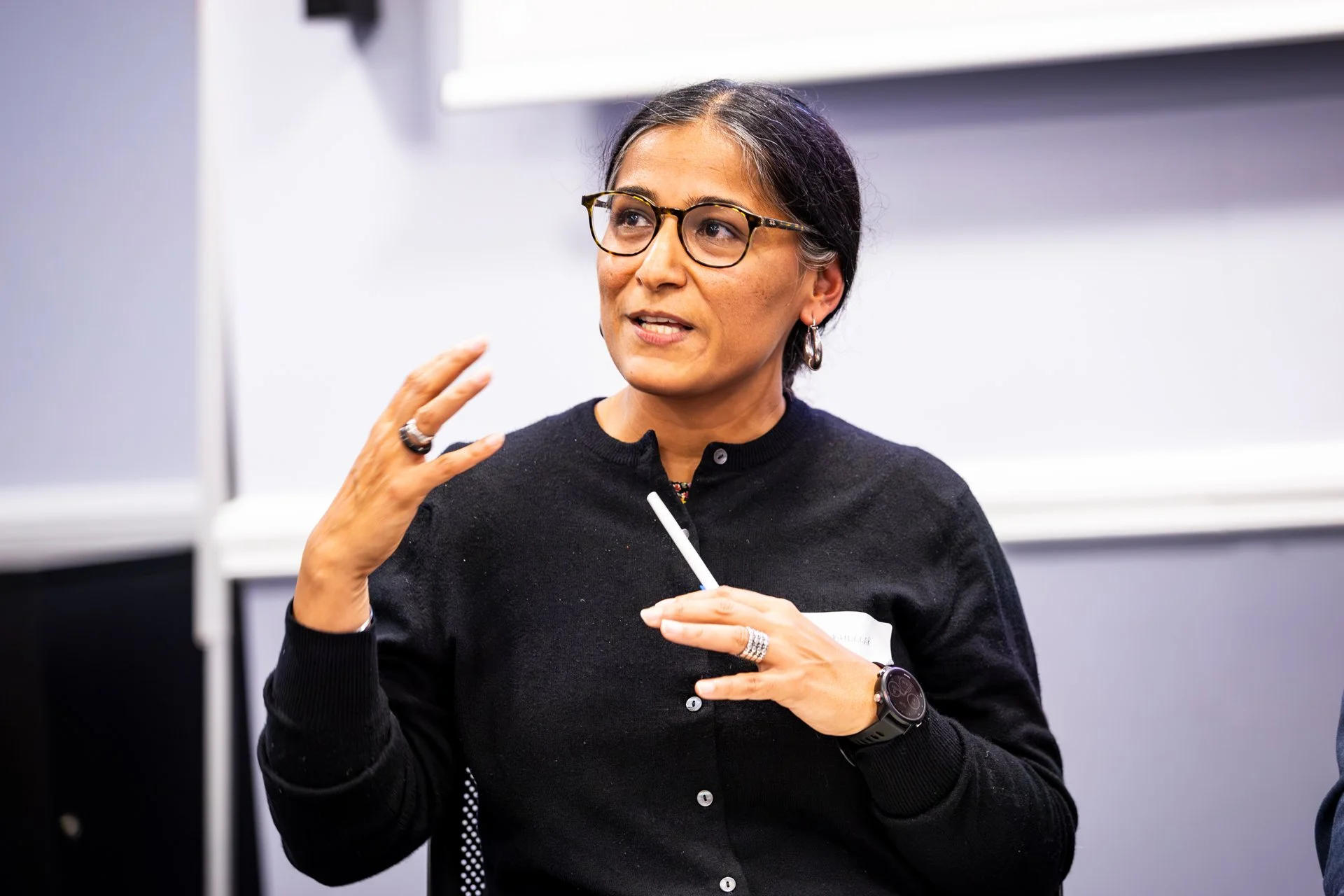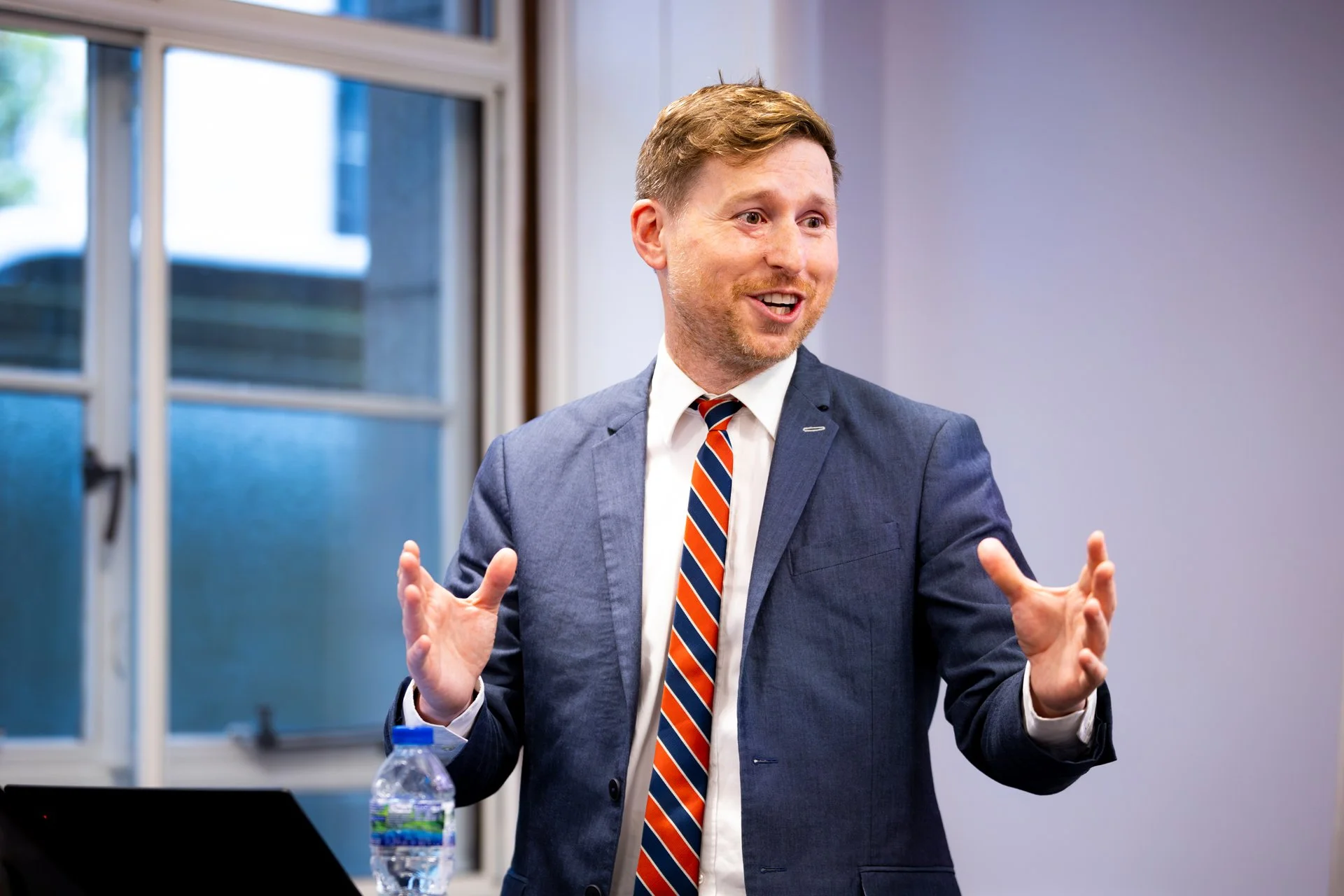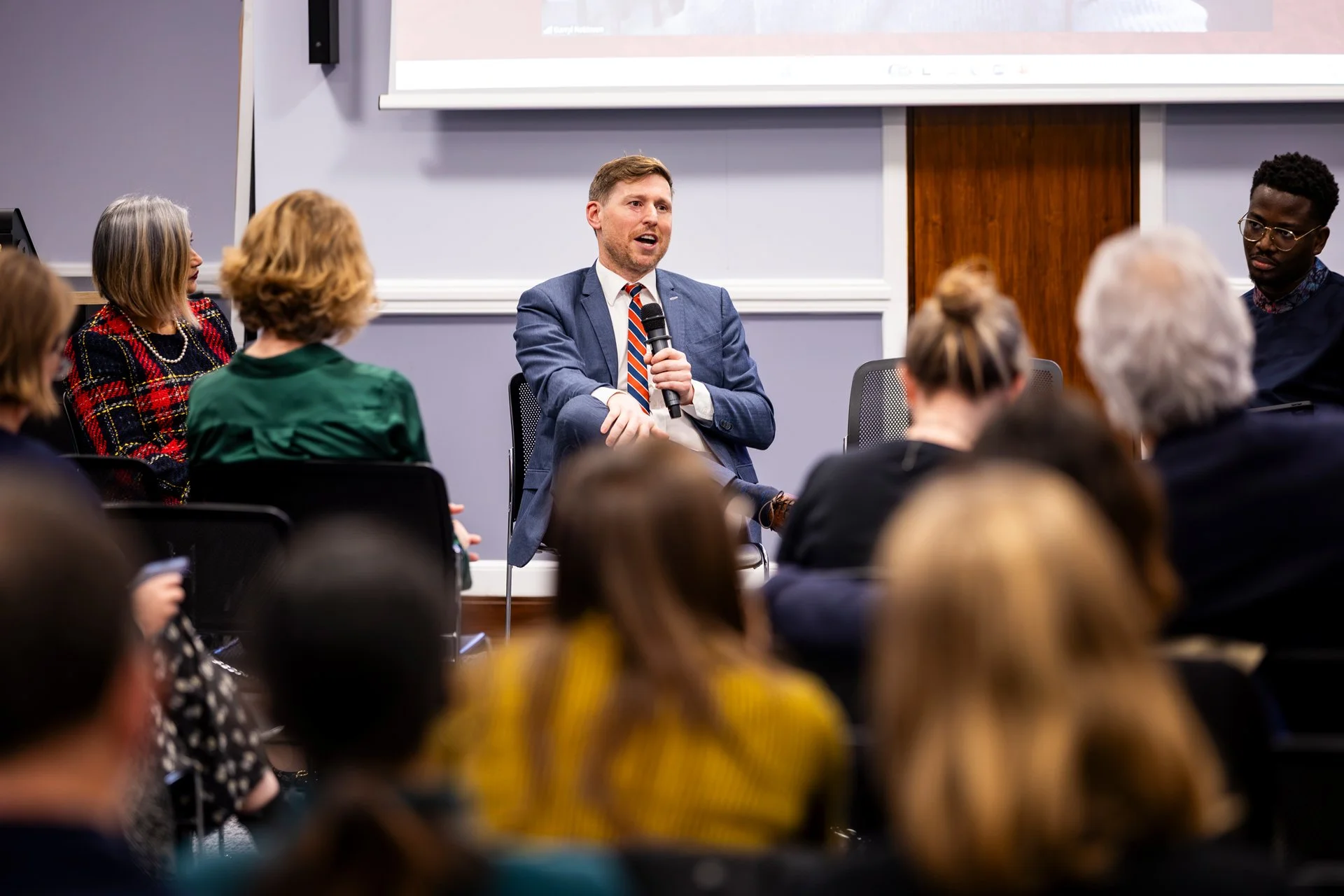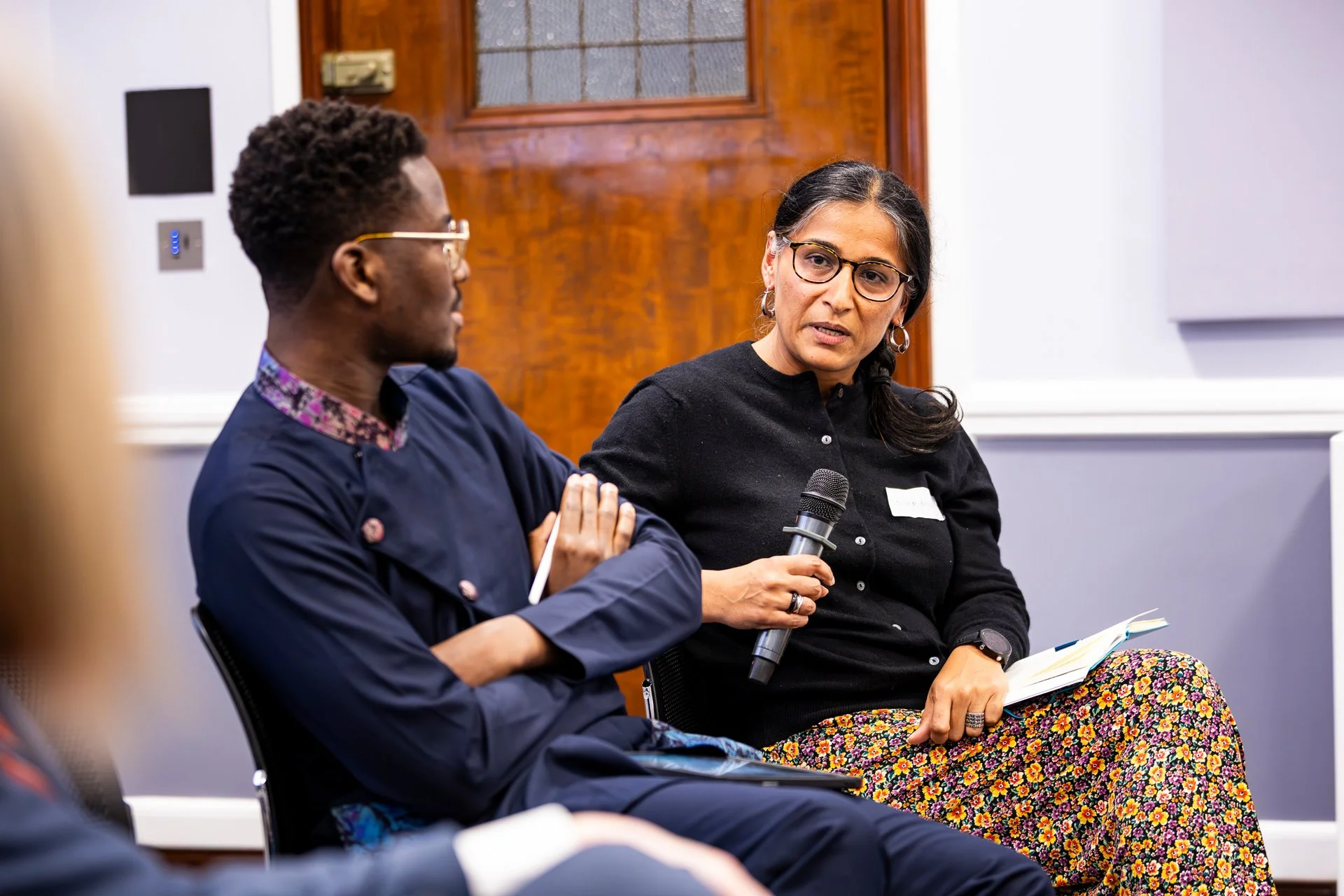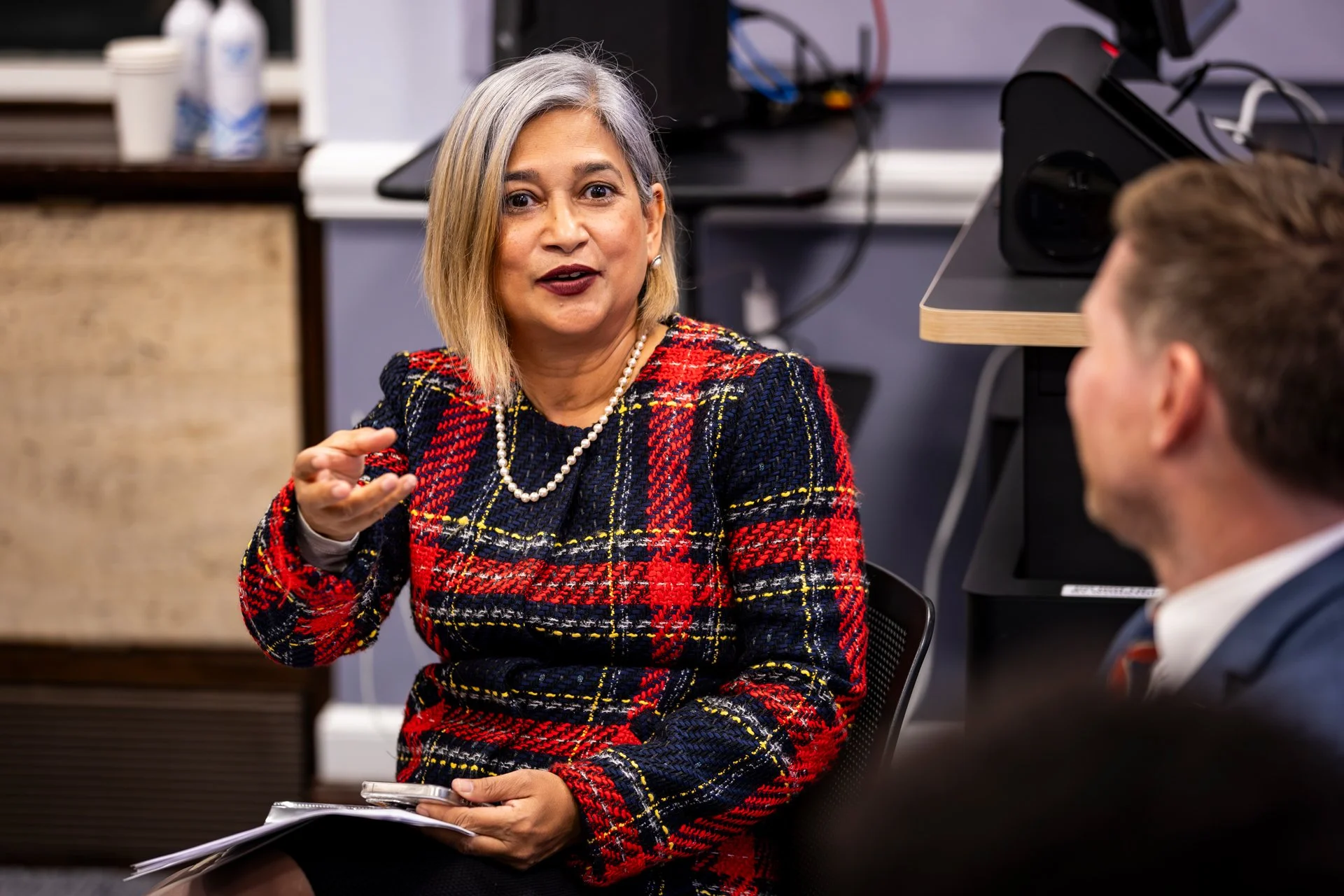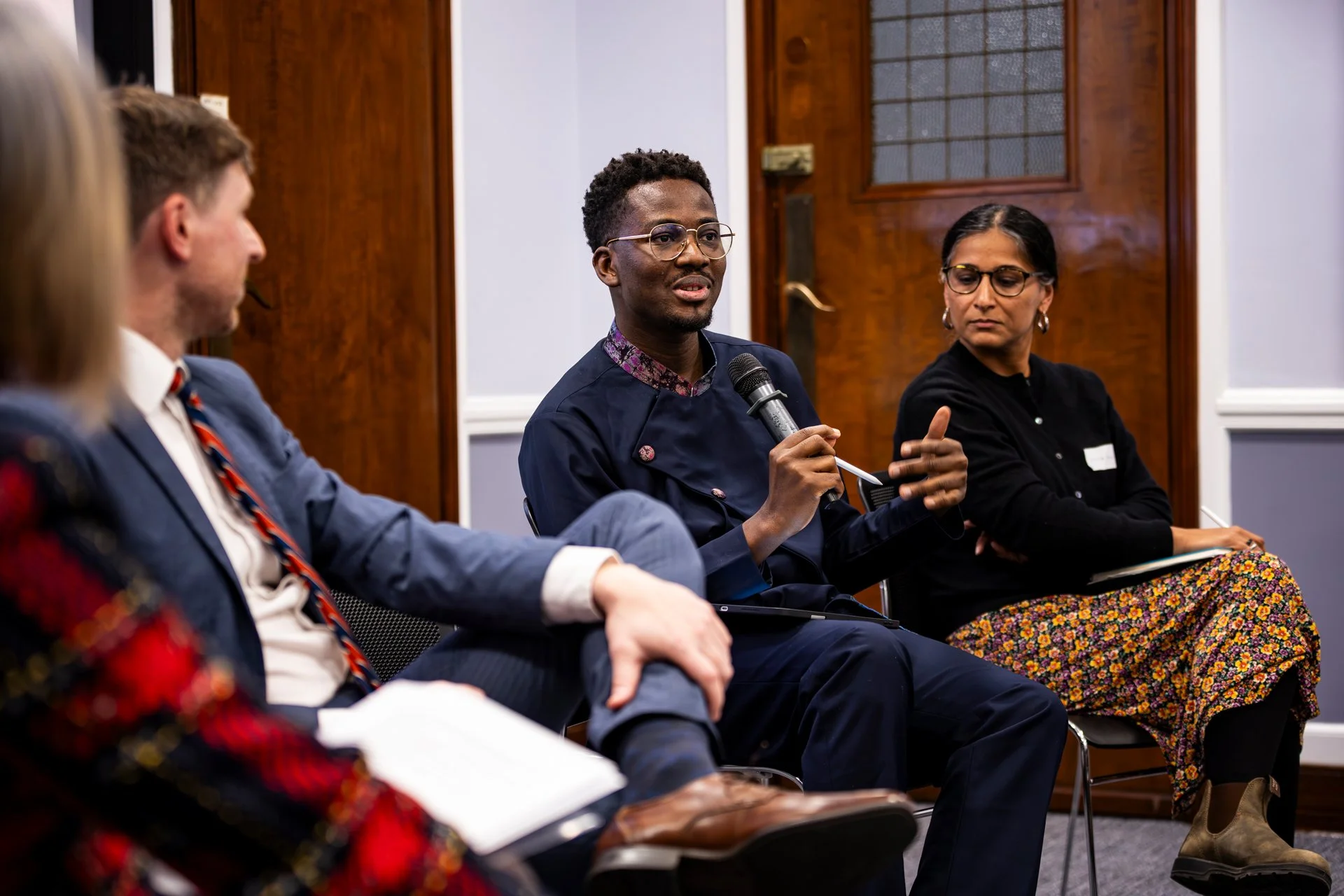Panel 3: Human Rights and Environmental Stewardship
The third panel of the day, chaired by Dr. Farah Faizal, former High Commissioner of the Maldives, explored Human Rights and Environmental Stewardship.
Lovleen Bhullar, co-author of Reviving India’s River Goddesses: Ecocide, the Right to a Healthy Environment and Rights of Nature, discussed India’s polluted rivers and the layered legal context. She noted that India is not a party to the Rome Statute but has its own environmental legislation, and that long before state law, local communities developed their own systems governing stewardship, ownership, and protection of natural resources.
Dr Matthew Gillett and Darryl Robinson presented contrasting perspectives on anthropocentrism and ecocentrism. Darryl argued that ecocentrism encompasses all forms of life, including human life, while Matthew emphasised the need for legal frameworks that explicitly protect elements of the natural world that cannot assert rights in the way humans can.
Daniel Adjin Odonkor intervened with a real-life example, highlighting the complexity of addressing illegal gold mining in Ghana, where some members of Indigenous communities, having been displaced from traditional and sustainable ways of life, now rely on extractive and polluting practices as a means of survival.
He underscored the inequity of a system in which corporations from the Global North have long profited from large-scale resource extraction, yet communities in the Global South engaging in small-scale mining under economic pressure are subject to criminalisation. Many of these communities understand the land as theirs to use, and contemporary legal concepts of ownership and regulation may not align with long-standing cultural and communal practices.
Applying ecocide legislation in such contexts risk injustice. It is therefore essential to balance environmental protection with historical, cultural, and human rights sensitivity before moving towards prosecution.
